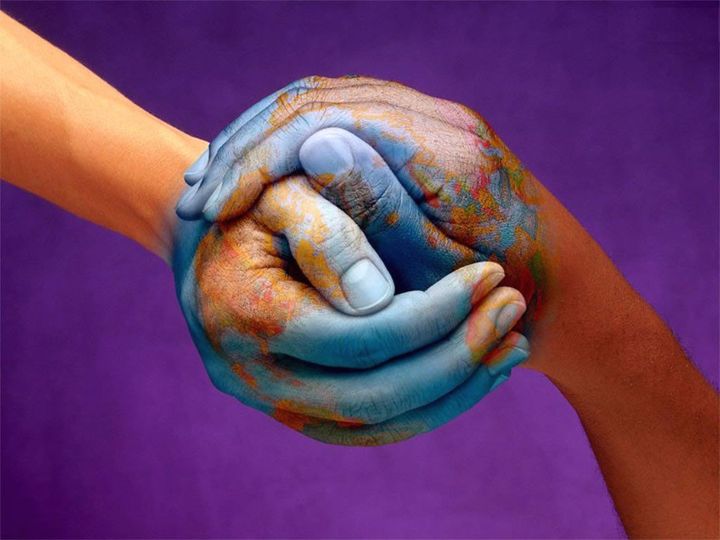
Activist and humanitarian Shukla Bose once said, "All parents all over the world want their children to lead a better life than themselves, but they need to believe that change is possible." As individuals and as a society, we all want to believe that changing the world for the better is possible, but few ever seem to know exactly what it takes. But as another wise person once said, "think globally, act locally."
Consider the San Antonio Mx Challenge and Operation Blue Sky, two incentive-based challenges that are working to affect change in their respective spheres. Whereas the former is dedicated to ensuring the creation of startups in San Antonio that are owned and operated by members of the Mexican community, the latter is looking to improve the delivery of medical services to Canada's First Nations population.
In this respect, these challenges and those sponsoring them are looking to change the world, starting with their corner of it.
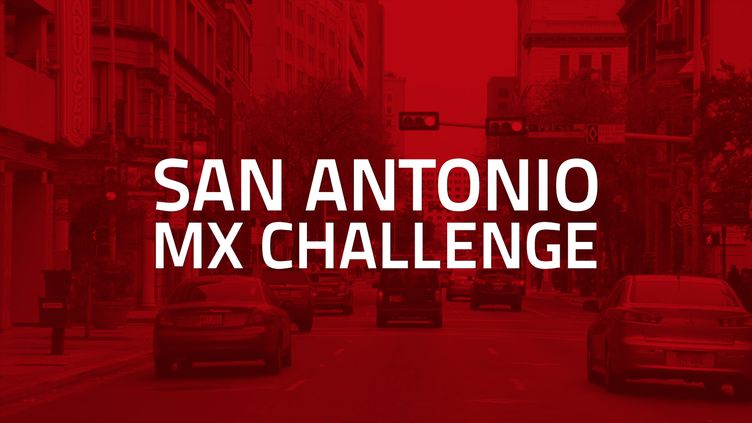
The San Antonio Mx Challenge aims to help establish Mexican tech startups in the city. Credit: HeroX
Sponsored by Geekdom - a collaborative coworking space in San Antonio, TX dedicated to bringing people and businesses together - the Mx Challenge was inspired by the unique position the city occupies. As a major national and regional hub for entrepreneurs, technologists and innovators, it is also an economic and cultural nexus between the United States and Mexico.
In addition to being the second largest economy in Latin America, Mexico is also one of the United States' biggest import/export partners. On top of that, it is estimated that by 2050, the nation will be one of the top ten economies in the world. Given its proximity and cultural connection to Latin America, San Antonio is ideally suited to take advantage of this growth. Last, but not least, the Mexican-American community is growing in San Antonio and occupying an increasingly important role in the city's economy.
With all these factors in mind, the goal of the SAMxC is to make the city of San Antonio famous for its partnership with Mexico by encouraging Mexican entrepreneurs to start their US expansion strategy there. At the same time, it aims to make US entrepreneurs think of San Antonio first when planning their growth strategies into Mexico, Central, and South America.
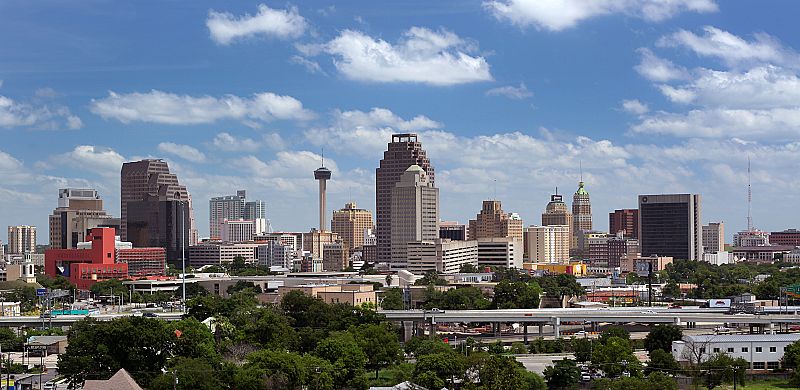
San Antonio is a major economic and technological hub, situated at a crossroads with Latin America. Credit: bexarwitness.com
Jesus Salas, the Mx Challenge Program Director at Geekdom, explained the company's decision to mount an incentive-based competition in a recent Q&A: "San Antonio is a city that has one of the strongest connections in the United States with Mexico. Most of the connection that San Antonio has with Mexico is around the tourism area. It is a very generous relationship, but we are looking on the long term.
"Today, in Mexico the government is spending millions of dollars on the development of incubators and accelerators throughout Mexico to give birth to hundreds of startups," he went on. "So the main reason of funding the Mx Challenge is to strengthen the connection with Mexico on the innovation and entrepreneurial area."
The competition will officially kick off in March of 2016, and will be open to any individual or team that meets the LLC and visa requirements. It will conclude on September 2016, at which time the prize of $500,000 USD will be awarded to whichever individual, team or organization is able to create and implement a repeatable model that will assist Mexican tech companies to open active offices in San Antonio.
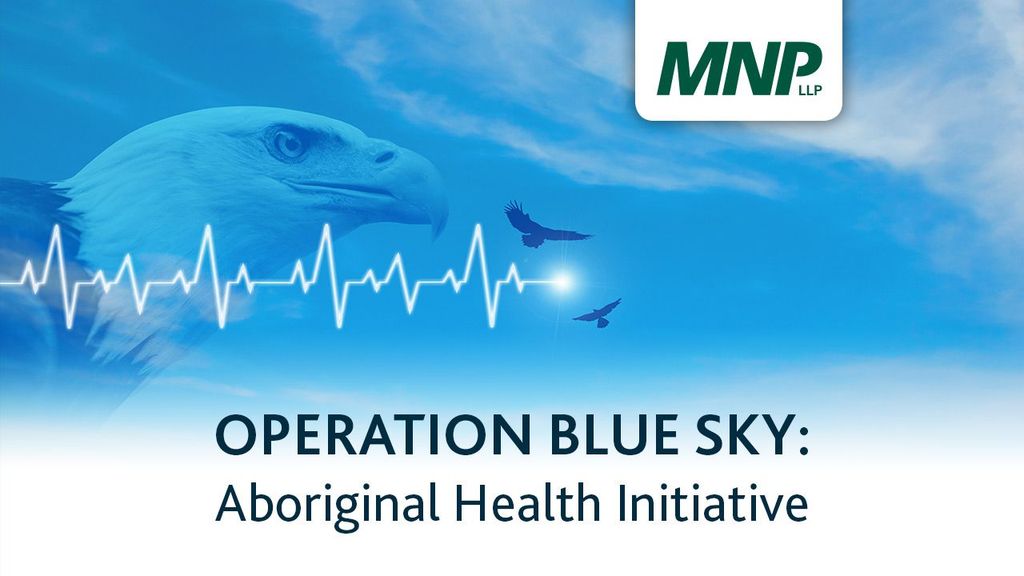
Operation Blue Sky aims at narrowing the health gap between Aboriginal communities and the rest of Canada. Credit: HeroX
By contrast, Operation Blue Sky seeks to address an ongoing problem of dispropionate access and health standards in Canada's Aboriginal communities. Despite being renowned for its health care system, which is a source of pride for many Canadians; statistically, First Nations, Inuit and Métis people experience considerably lower health outcomes than other Canadians.
For instance, according to Health Canada, within Aboriginal communities, heart disease is 1.5 times higher than the national average, Type 2 diabetes is 3 to 5 times higher, and tuberculosis infection rates are 8 to 10 times higher, compared with non-Aboriginal Canadians. A 2013 report by the National Collaborating Centre for Aboriginal Health (NCCAH) also indicated an increased risk for many other health problems.
These include high infant and young child mortality, infectious diseases, malnutrition and stunted growth, lower life expectancy, alcohol and drug dependency, obesity, diabetes, cardiovascular and respiratory diseases, increased risk of violence and abuse (physical and sexual), and an increased risk of disease related to environmental contamination.
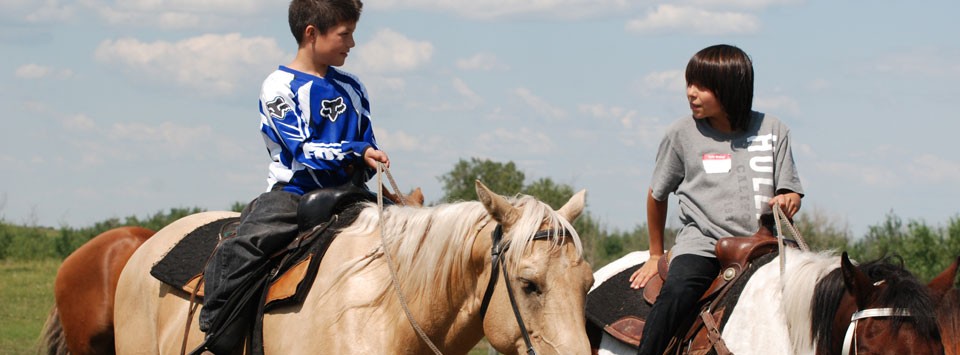
Despite increased federal spending, the health and wellness of Canada's aboriginal communities continue to lag behind the national standard. Credit: naho.ca
MNP, a Canadian accounting, tax and consulting firm that has served Aboriginal communities for over 25 years, has witnessed many attempts at reforming this situation. These have included Aboriginal-led initiatives in recent years, where creative partnerships, new technologies, e-health solutions, and giving local communities full control over their health care spending has led to positive outcomes.
In addition, the federal government has increased health care spending for Aboriginal people ($2.4 billion in 2011/2012) in the hopes of narrowing this rather conspicious gap. In spite of all this, the problem of health and socio-economic inequities persist between the Aboriginal population and the general Canadian population.
As such, MNP is seeking a crowd-sourced solution to the problem. MNP manager Nicole Asselin had the following to say about her company's decision to go this route on March 17th, the day the challenge officially kicked off:
"For MNP, being one of the largest financial service providers to Aboriginals in the country and knowing first hand their plight when it comes to matters of health, we believed that crowd sourcing through an incentive prize challenge could truly make a difference in the lives of so many people in these communities that the excitement became palpable. We felt all along that this was an extremely worthy philanthropic endeavour but only through this process, were we able to allow ourselves to believe that it could possibly lead to reality and therefore became something we just had to do."

FNP, the sponors of Operation Blue Sky, have over 25 years of experience working with Canada's Aboriginal communities: Credit: opin.ca
The Challenge is currently open to submissions and will officially conclude in November, 2015. At this point, three prizes will made available, including a 1st-place Prize of $25,000 CDN, a 2nd-place Prize of $5,000 CDN, and a People’s Choice Prize of $5,000 CDN.
The winning submissions will be those that demonstrate an ability to address health outcomes in remote communities and reserves, and will be judged based on their relevance, the way they take into account the unique cultural values of the communities involved, be cost-neutral, flexible, implementible and practical, and able to work within the current legislative and fiscal environment.
From promoting collaborative relationships between cities, nations, and different communities, these two challenges are an example of what can happen when good ideas, sponsorship, and innovative minds come together to effect change. And even if these projects change the lives of only a few people, they are still sure to inspire others to make a difference in their own way.
As Mahatma Ghandi once said, "Be the change you want to see in the world." If indeed we all want the world to be a better place, the first step is finding a way to get involved. This can be something as simple as making a small donation or offering our time and energy to a project. Or, it can be as significant as people from all walks of life coming together to make something big happen.
How will you change the world?
Main photo, credit: pixgood.com
